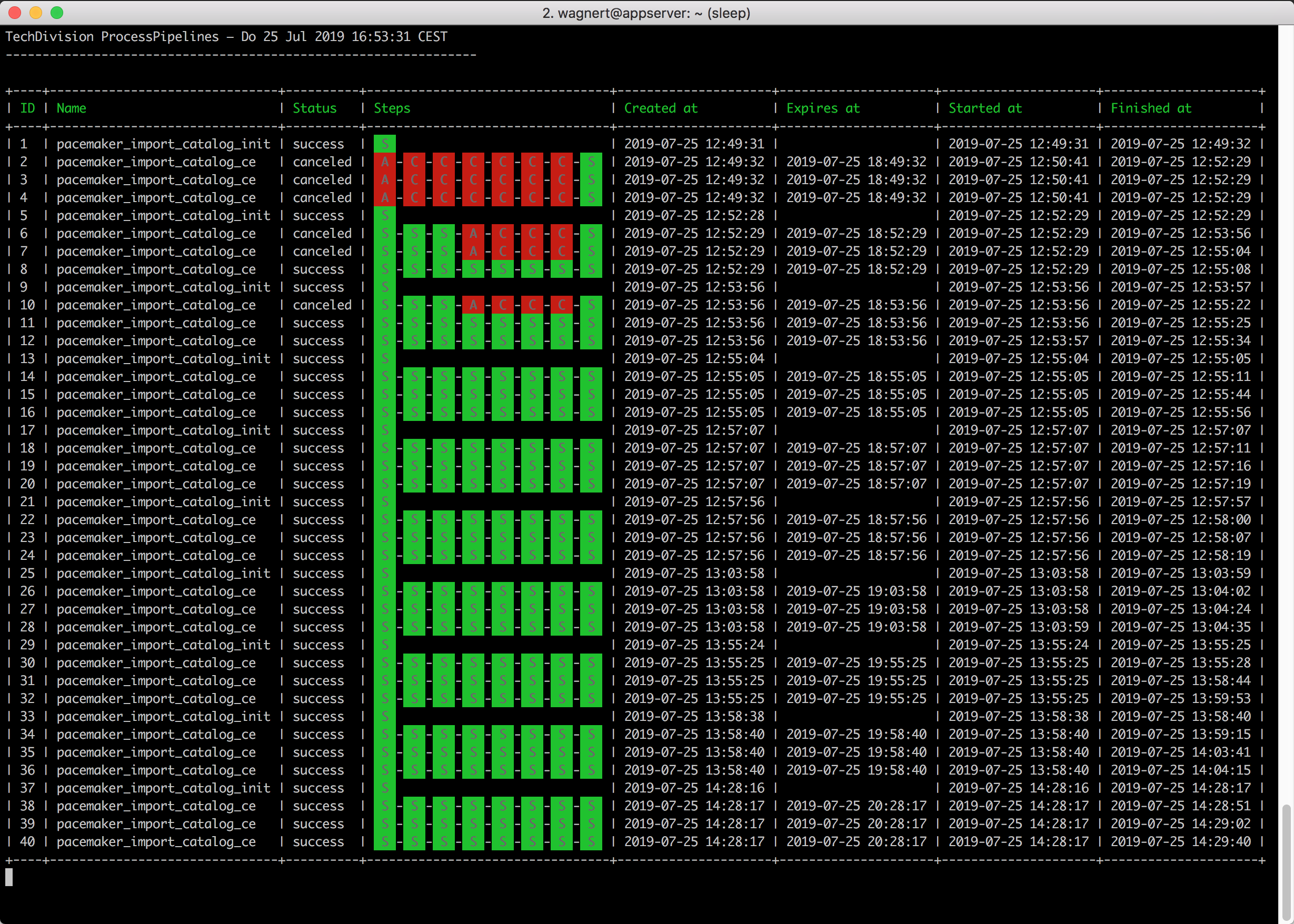Run your first predefined import jobs
Pacemaker provides predefined import jobs, which can be used out of the box.
Therefore there are sample import files (CSV) included in the installed composer packages.
By importing these sample files, you will import Magento’s sample data, like
they would be created by running the sampledata:deploy command.
Requirements
The following tutorial requires an up and running Pacemaker like it is described on the following pages:
Copy sample files into observed import directory
You can copy all sample files into the import directory, and Pacemaker would automatically initialize import pipelines ( What is a pipeline? ) for each import bunch (a bunch of CSV files).
Execute the following command from the root directory of your Magento installation, depending on which kind of import you want to execute.
Catalog import (attributes, categories, products)
Sample data set 1
The first sample data set includes all kinds of imports (attribute sets, attributes, categories, and products), which are bundled in multiple bunches.
cp -R vendor/techdivision/pacemaker-import-catalog/sample-data/bunch1/* var/pacemaker/importSample data set 2
The following sample data set includes only category imports, which are bundled into two bunches.
cp -R vendor/techdivision/pacemaker-import-catalog/sample-data/bunch2/* var/pacemaker/importPrice import / inventory (stock) import
Sample data for price and inventory import includes only one import file each.
It is also possible to split up these imports into multiple files and optionally cluster them into multiple bunches like it is done for the catalog import.
Use the following command for price import:
cp -R vendor/techdivision/pacemaker-import-price/sample-data/bunch1/* var/pacemaker/importUse the following command for inventory (stock) import:
cp -R vendor/techdivision/pacemaker-import-inventory/sample-data/bunch1/* var/pacemaker/import